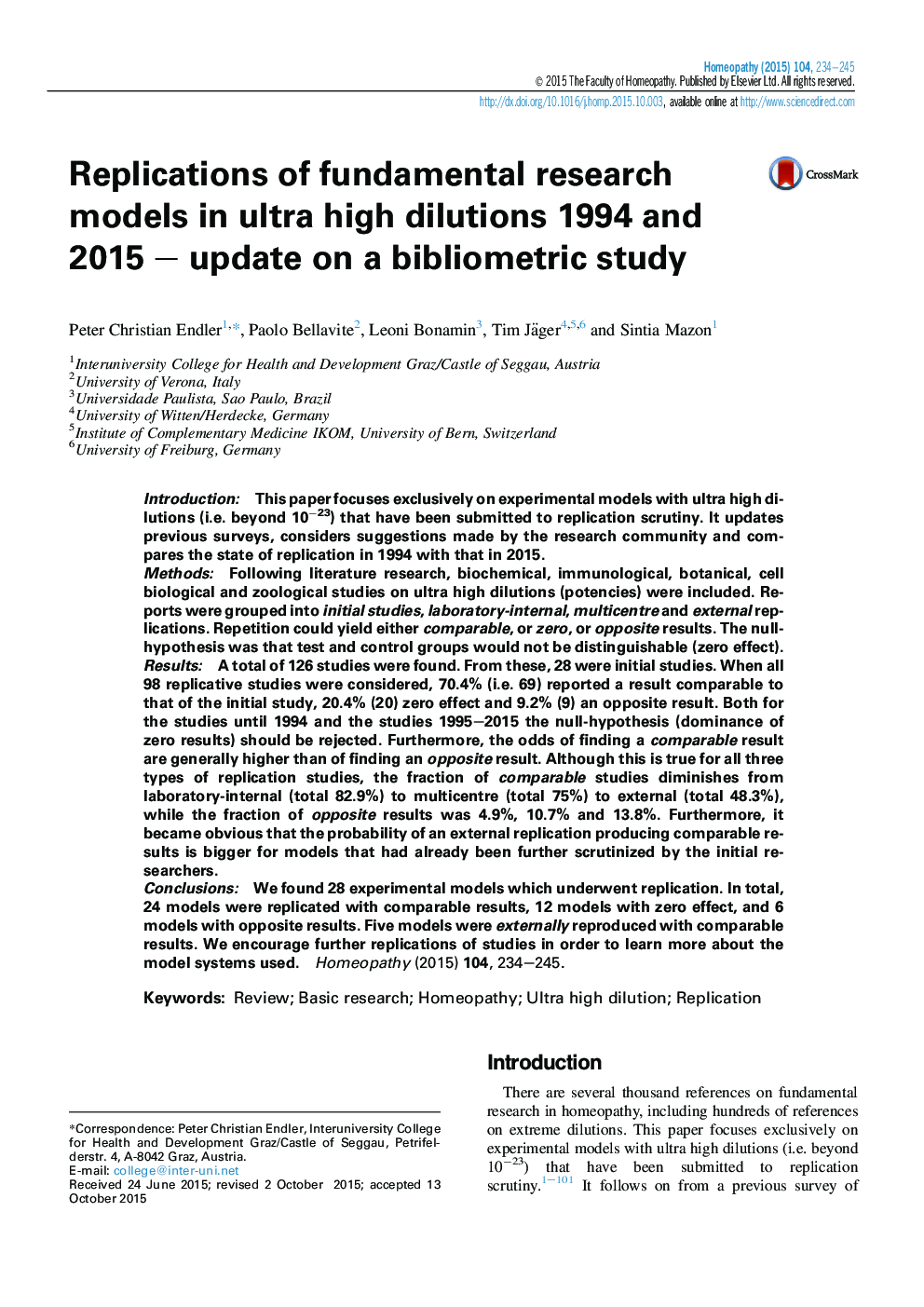| Article ID | Journal | Published Year | Pages | File Type |
|---|---|---|---|---|
| 2629800 | Homeopathy | 2015 | 12 Pages |
IntroductionThis paper focuses exclusively on experimental models with ultra high dilutions (i.e. beyond 10−23) that have been submitted to replication scrutiny. It updates previous surveys, considers suggestions made by the research community and compares the state of replication in 1994 with that in 2015.MethodsFollowing literature research, biochemical, immunological, botanical, cell biological and zoological studies on ultra high dilutions (potencies) were included. Reports were grouped into initial studies, laboratory-internal, multicentre and external replications. Repetition could yield either comparable, or zero, or opposite results. The null-hypothesis was that test and control groups would not be distinguishable (zero effect).ResultsA total of 126 studies were found. From these, 28 were initial studies. When all 98 replicative studies were considered, 70.4% (i.e. 69) reported a result comparable to that of the initial study, 20.4% (20) zero effect and 9.2% (9) an opposite result. Both for the studies until 1994 and the studies 1995–2015 the null-hypothesis (dominance of zero results) should be rejected. Furthermore, the odds of finding a comparable result are generally higher than of finding an opposite result. Although this is true for all three types of replication studies, the fraction of comparable studies diminishes from laboratory-internal (total 82.9%) to multicentre (total 75%) to external (total 48.3%), while the fraction of opposite results was 4.9%, 10.7% and 13.8%. Furthermore, it became obvious that the probability of an external replication producing comparable results is bigger for models that had already been further scrutinized by the initial researchers.ConclusionsWe found 28 experimental models which underwent replication. In total, 24 models were replicated with comparable results, 12 models with zero effect, and 6 models with opposite results. Five models were externally reproduced with comparable results. We encourage further replications of studies in order to learn more about the model systems used.
